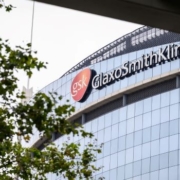Mirati’s Sitravatinib fails in Phase III lung cancer trial, nixes development
Mirati’s Sitravatinib fails in Phase III lung cancer trial, nixes development
Published: May 25, 2023
By Tristan Manalac
BioSpace
A final analysis of the Phase III SAPPHIRE trial showed that Mirati Therapeutics’ investigational kinase inhibitor sitravatinib failed to meet its primary endpoint in patients with non-squamous non-small cell lung cancer, the company announced Wednesday.
In its short news release, the cancer-focused company said that treatment with sitravatinib, in combination with Bristol Myers Squibb’s Opdivo (nivolumab), did not significantly improve overall survival as compared with docetaxel, when used as a second- or third-line treatment option. Mirati did not provide specific data but plans to do so in the future.
Wednesday’s news follows a December 2022 announcement that based on interim survival findings, Mirati was pushing SAPPHIRE to its final analysis. The company likewise did not provide any specific data at the time.
Sitravatinib was a spectrum-selective inhibitor that strongly inhibits receptor tyrosine kinases, including split family receptors and TAM family receptors. This broad range of targets and specific mechanism of action allow sitravatinib to undo a tumor’s immunosuppressive microenvironment, in turn potentially overcoming checkpoint inhibitor resistance.
Mirati has run several trials testing sitravatinib in various drug combinations as treatment options for patients who were resistant or naïve to checkpoint inhibitors.
However, with SAPPHIRE’s failure, Mirati will discontinue all development of sitravatinib, at least outside the Asia-Pacific region, a company spokesperson told Fierce Biotech. China’s BeiGene holds development rights to sitravatinib in Asia (except Japan), New Zealand and Australia.
SAPPHIRE was an open-label, randomized trial enrolling more than 530 metastatic non-squamous non-small cell lung cancer (NSCLC) patients. Only those who had undergone one to two prior lines of PD-1 checkpoint inhibitor or platinum-based therapies were eligible to participate.
Sitravatinib’s defeat leaves Mirati with one late-stage asset: adagrasib. The orally available, small molecule drug nabbed the FDA’s accelerated approval in December 2022 for NSCLC with the G12C mutation in the KRAS gene and is being marketed under the brand name Krazati.
Mirati is currently running two Phase III trials of adagrasib, one as a monotherapy in NSCLC and another in combination with Lilly’s Erbitux (cetuximab) for the treatment of colorectal cancer. The company also has four ongoing Phase II studies and one Phase I/Ib study for adagrasib.
The rest of Mirati’s other candidates are in early stages of development. This includes the KRAS inhibitor MRTX1133, being assessed for pancreatic and colorectal cancer, as well as NSCLC, and the SOS1 inhibitor MRTX0902, being studied in solid tumors.
Source: BioSpace











